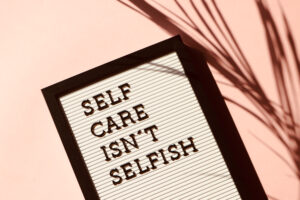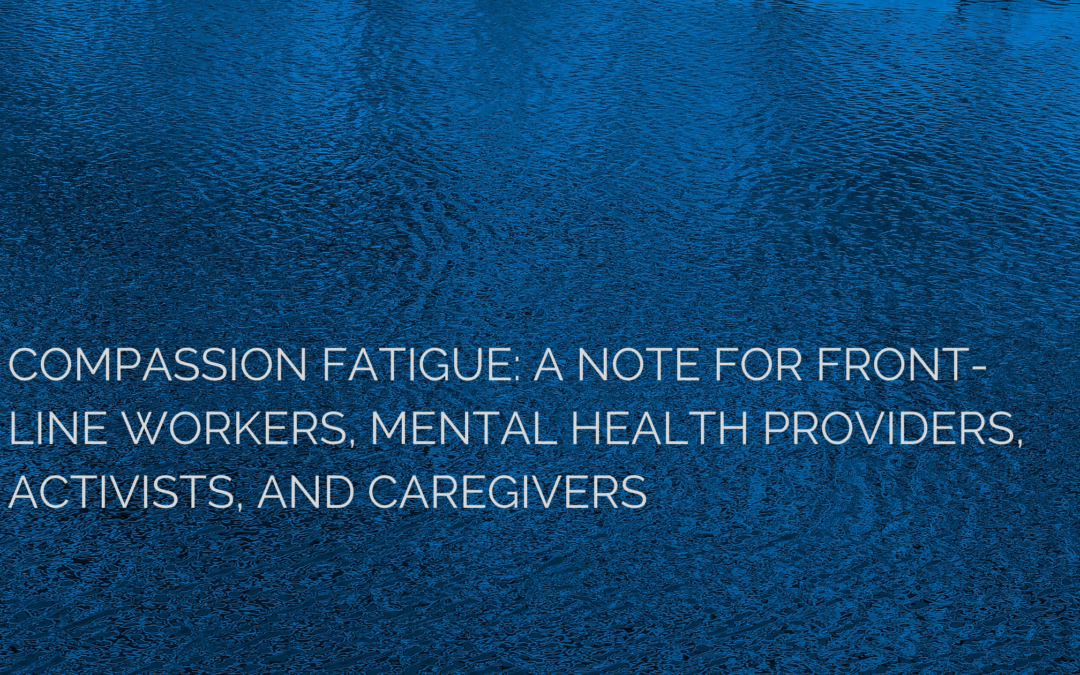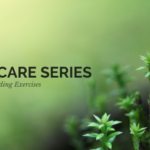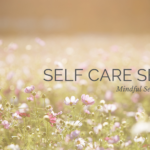
Although each one of us has had a reaction to the collective trauma inherent in the current situation, there are certain professions and work (paid or unpaid) that have increased exposure to trauma and suffering. Although we wish things would be different, the reality is that systemic change rarely comes overnight, and the COVID-19 pandemic is not going away any time soon. As times goes on, I keep thinking of ways to support our country’s front-line workers, mental health providers, activists, and caregivers. I wonder how they can continue their critical work without experiencing a great toll on their mental and emotional well-being. Given our current reality, how does the community of helpers and activists sustain their crucial work?

As with any difficult experience, increasing awareness and recognition, both within ourselves and our colleagues, is a key first step. As you read through this list, please be kind to yourself and gently remind yourself that if you are experiencing compassion fatigue, it doesn’t mean you are deficient in any way.
Early Warning Signs of Compassion Fatigue:

- Fear and/or sadness
- Loneliness, isolation
- Loss of meaning and purpose, Loss of sense of self
- Sense of dread
- Cynical
- Irritability, anger, or rage
- Self-doubt
- Perfectionism
- Resentment or hating work
Mental:
- Poor concentration or “brain fog”
- Intrusive thoughts
- Apathy or detachment
- Experience of overwhelm
- Anxiety and/or depression
Physical:
- Fatigue, Exhaustion
- Insomnia
- Appetite changes
- Muscle tension
- Headaches
If any of these symptoms sound familiar, here’s a link to further explore your experience:
Professional Quality if Life Scale (ProQOL)
It seems like I might be experiencing compassion fatigue, or even burnout, now what?

- Create a self-care plan. It may feel overwhelming to take some time and sit down to think through what you may need day in and day out in order to sustain. Patricia Smith offers advice in each area of self-care, which includes physical wellness, emotional wellness, social wellness, spiritual wellness, intellectual wellness, occupational wellness, and environmental wellness.
- Recognize and validate through self-compassion. Rather than pushing away or judging your experiences, try giving yourself kindness and compassion. The way you do for others. In addition to being another form of self-care, Dr. Kristen Neff explains that compassion for ourselves will help us be able to stay in the presence of suffering without drowning in it.
Incorporate mindfulness practices. The benefits of mindfulness have been widely researched and written about. Consider your own nervous system and how it is ebing affected by your occupation and the world surrounding us. Could you be in some sort of fight, flight, or freeze response to the world around us. Mindfulness can support the nervous system in a variety of ways. In a recent podcast, Dr. Rick Hanson discusses compassion fatigue among front-line workers and ways to mitigate the impact, including mindfulness.
- Connect. Over the last few months, many of us have been separated from our communities, support systems, and loved ones. I worry that this isolation adds to the distress many helpers are already experiencing. Feeling alone in one’s experience of compassion fatigue can create self-doubt and even more sadness and anxiety. I encourage you to reach out to people who you trust and who ‘get’ what you’re going through. Here’s an article that is specific to therapists in the time of COVID-19, it helped normalize what I’ve been experiencing over the last few months and added to a sense of community.
- ‘I’m worried about the therapists and the invisible frontline’

- Activism and Compassion Fatigue
- Caroline Poland explains compassion fatigue in the time of COVID-19:
- Self-compassion resources:


 Incorporate mindfulness practices.
Incorporate mindfulness practices. 

